- The University
- Studying
-
Research
- Profile
- Infrastructure
- Cooperations
- Services
-
Career
- Med Uni Graz as an Employer
- Educational Opportunities
- Work Environment
- Job openings
-
Health
-
Health Topics
- Health Infrastructure
-
Health Topics
I am ... an entrepreneur
Are you the head of a company with a biomedical focus and do you have a great interest in scientific progress? Then allow us to give you a brief overview of opportunities for cooperating with Med Uni Graz and to present our scientific portfolio.

Medical progress in a variety of research areas
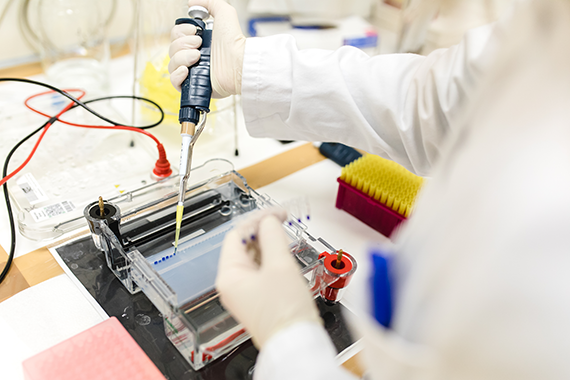
Lipid and energy metabolism
Obesity, type 2 diabetes, nonalcoholic fatty liver disease and cancer are common diseases that represent a great challenge to the health care system. The special research area "Lipid Hydrolysis" funded by the Austrian Science Fund (FWF) is pursuing the long-term goal of discovering the role lipid hydrolases play in the development of disease in order to develop new treatment strategies.
It is a great challenge to identify all lipid hydrolases and describe their functions. A comprehensive understanding of the structure, function and physiological significance of this enzyme is essential in order to detect new connections between lipid and energy metabolism and the development of metabolic diseases.
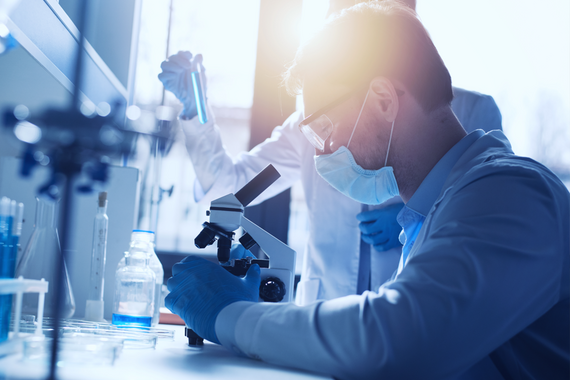
A center for placenta research
Many pregnancy complications can be attributed to a disturbance in placenta function. The doctoral program and research project "Inflammatory Disorders in Pregnancy," or DP-iDP for short, investigates the interaction between pregnancy, inflammation and the placenta in diseases affecting the mother and the fetus.
New translational methods are applied and basic researchers and clinicians work in close cooperation. Primarily diseases such as diabetes, obesity, preclampsia or intrauterine growth restriction arise along with multifactorial inflammatory diseases of the placenta. Since the exact backgrounds and mechanisms are largely unknown, they make up the research focus of this program.
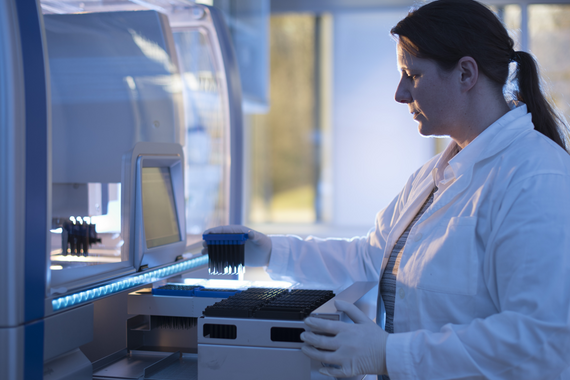
Non-invasive early cancer detection
Liquid biopsy is used in a variety of ways in cancer treatment and is applied to continually monitor the progress of therapy. Employing a blood test instead of tissue biopsies, it is also seen as a very promising approach for early detection of cancer. A Christian Doppler laboratory funded by the Federal Ministry of Digital and Economic Affairs has been set up with company partner Freenome Holdings.
Before liquid biopsy can be broadly used outside of clinical trials and research projects, the sensitivity and accuracy as well as the predictive and prognostic value of ctDNA must be evaluated in large prospective studies.
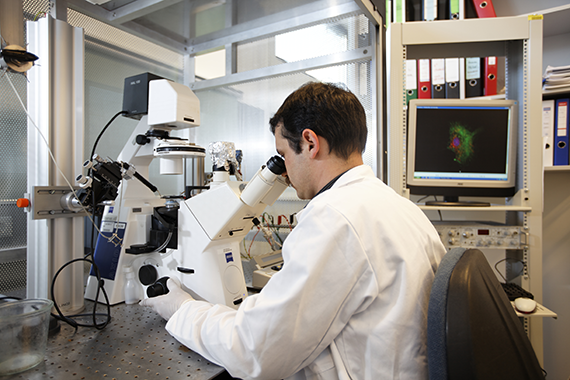
Pulmonary vascular research
Pulmonary hypertension is an insidious disease with a high number of unreported cases since there are no typical signs of the disease and the symptoms are non-specific and multiple. A diagnosis is very complex. The Ludwig Boltzmann Institute for Lung Vascular Disease strives to make an early diagnosis possible through simpler and gentler procedures and to set new standards with non-invasive procedures (if possible) and development of targeted drugs in order to improve the performance and quality of life of those who are affected.
The research focus is on the molecular mechanisms of vascular remodeling leading to the development of disease, the development of bespoke therapies and the early detection and therapy of the disease.
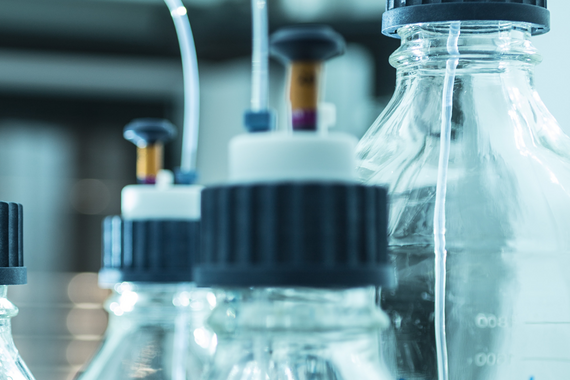
Biomarker research
Biomarkers are units that can be measured biologically such as enzymes, hormones and genes that make early detection and individual therapy of diseases possible. Completely new types of biomarkers also allow entirely new treatments—and that is what the CBmed competence center is researching. These findings are implemented into practical applications in cooperation with national and international companies.
The vision of CBmed is to become the world's most recognized center for biomarker research in personalized medicine by 2030. It will achieve this by integrating cutting-edge technologies with international and interdisciplinary expertise in the fields of cancer and cardiometabolic health.
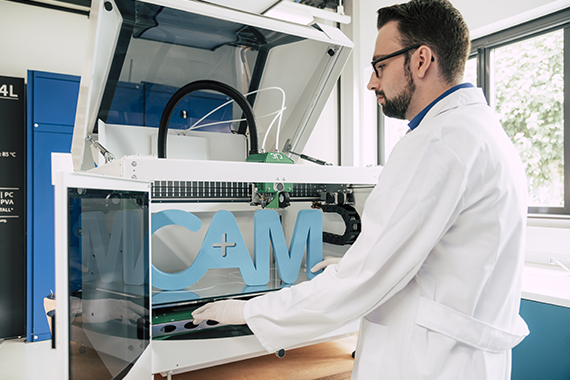
Implants that fit perfectly
3D printing makes it possible to produce an exact component from digital models in no time at all. When adapted to meet the requirements of the highly sensitive field of medicine, these innovative technologies also have a distinct advantage. It will be possible to "print" models of the body to help surgeons prepare for an operation, implants or prostheses for direct patient use or perfectly adapted tools for individual applications.
As part of the COMET-K project "CAMed" (Clinical Additive Manufacturing for Medical Applications), an interdisciplinary research consortium of 20 international partners from science and industry are rising up to meet precisely these challenges.
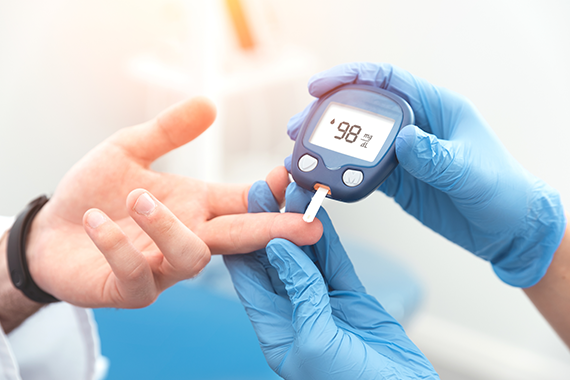
International diabetes network
According to current estimates, around ten percent of the world's population is affected by diabetes. In type 1 diabetes mellitus, the pancreas cannot supply the body with any or enough of the insulin it requires. 17 million people around the world suffer from this type of diabetes. The international research network INNODIA has set the goal of developing and expanding the search for therapeutic options that prevent and cure type 1 diabetes.
Med Uni Graz significantly contributes to the success of the project by providing its expertise: Current developments such as the artificial pancreas or the GlucoTab app for diabetes management are proof of the innovative power of Graz metabolism experts.
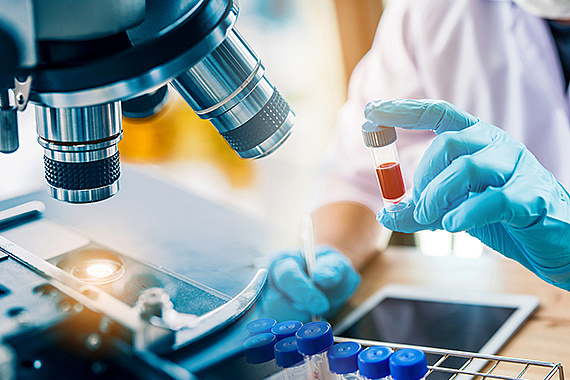
Quick detection of diseases
Symptoms such as high fever and a strong feeling of malaise can be signs of a large number of dangerous inflammatory and infectious diseases. A range of blood tests, biopsies, MRT and CT scans and other tests are often required to diagnose a disease. The development of a quick blood test to diagnose severe inflammatory and infectious diseases is the goal of scientists in the research project "DIAMONDS."
The new test may shorten the time required to detect serious diseases such as pneumonia, tuberculosis, sepsis, meningitis and autoimmune diseases to two hours.
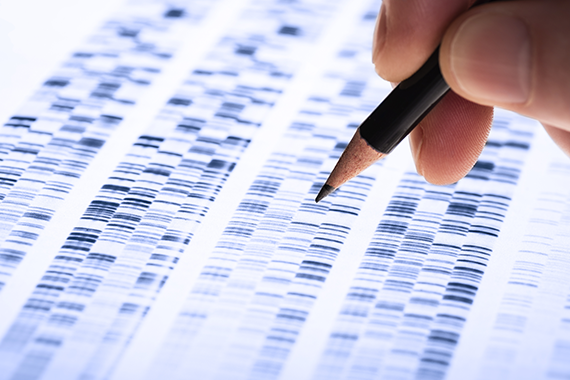
Insight into DNA
DNA sequencing has caused a revolution in the biological sciences. It is no longer possible to imagine molecular biology and genetic engineering lab work without it. For example, DNA sequencing facilitates the investigation of genetic disorders. Next generation sequencing—NGS for short—is a state-of-the-art procedure for DNA sequencing that permits accelerated and cost-effective DNA sequencing through massively parallel processing.
The focus of the EU project "Instand-NGS4P" is on developing gene sequencing for more efficient use in cancer diagnostics for patients.
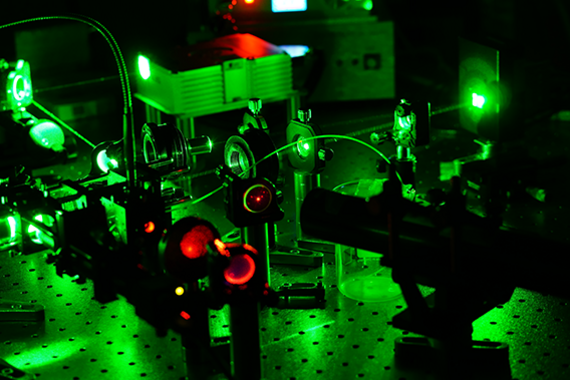
Production of nanoparticles
Nanoparticles are atoms or molecules that are brought together to form combinations. The size of this particle ranges from 1 to 100 nanometers (1 Nanometer = 1 billionth of a meter). We encounter nanoparticles every day in a wide variety of products for daily use. For example, they are found in cosmetic products, coatings, infusions, food supplements and much more. They are thousands of times smaller than the diameter of a human hair.
In the EU project "NanoPAT," scientists are concerned with how to improve quality and efficiency in the production of nanoparticles. Med Uni Graz researchers contribute their expertise in process analytical technologies to the consortium.


